The impact of Osama bin Laden's death continues to ripple, straining the U.S.'s relationship with Pakistan. After a bump in the polls, Obama returns to domestic policy while the GOP presidential field adds a few more candidates. Joining Gwen: David Sanger, New York Times; Nancy Youssef, McClatchy Newspapers; John Dickerson, Slate/CBS News; Dan Balz, Washington Post.
Full Episode: May 13, 2011
Nov. 03, 2014 AT 5:07 p.m. EST
TRANSCRIPT
Notice: Transcripts are machine and human generated and lightly edited for accuracy. They may contain errors.
MS. IFILL:
Osama bin Laden is dead, so what’s next for Afghanistan and Pakistan? Newt Gingrich is running for president. What’s next for 2012? We tackle it all tonight on “Washington Week.”
PRESIDENT BARACK OBAMA:
Osama bin Laden will never again threaten the United States of America.
MS. IFILL:
But nearly two weeks later, the fallout from the death of public enemy number one continues, especially in Afghanistan and Pakistan.
RAZA GILANI [Pakistani Prime Minister]:
Pakistan is not the birthplace of al Qaeda. We did not invite Osama bin Laden to Pakistan or even to Afghanistan.
MS. IFILL:
As the U.S. braces for retaliation, we learn more about what bin Laden planned and what happens next in South Asian and the Middle East.
On the domestic campaign trail, more candidates join the Republican fray.
NEWT GINGRICH:
I’m Newt Gingrich and I’m announcing my candidacy for president of the United States because I believe we can return America to hope and opportunity.
REPRESENTATIVE RON PAUL (R-TX):
There is an old saying, “three’s a charm.”
MS. IFILL:
And others edge toward the ring. How long can the Democratic president capitalize on the GOP’s uncertainty? Covering the week, Nancy Youssef of McClatchy Newspapers, David Sanger of the “New York Times,” Dan Balz of the “Washington Post,” and John Dickerson of “Slate” Magazine and CBS News.
ANNOUNCER:
Award-winning reporting and analysis, covering history as it happens, live from our nation’s capital, this is “Washington Week” with Gwen Ifill produced in association with “National Journal.”
(Station announcements.)
ANNOUNCER:
Once again, live from Washington, moderator Gwen Ifill.
MS. IFILL:
Good evening. Tonight, we talk fall out. Osama bin Laden’s death solved one mystery but has opened a Pandora’s Box of complications. At the top of that list: what happens with U.S. involvement in Pakistan and Afghanistan? The two allies present separate dilemmas, but each turns on how much money and how many troops will be devoted to the relationships with each nation.
Beginning with Afghanistan, Nancy, where do things stand tonight?
MS. YOUSSEF:
Well, this week we heard a lot from Secretary of Defense Robert Gates and some of the commanders in Afghanistan. There’re hopes that bin Laden’s death would lead to reconciliation between the coalition in the Afghan government and some of the insurgent groups there.
The problem is so far that hasn’t happened. And in fact, it seems that these groups are starting to think about what they should do if the United States leaves. And that certainly isn’t reconciliation, but essentially wait the clock, as they watch the debate happen here about whether the United State should stay engaged in Afghanistan.
MS. IFILL:
There’s a fair amount of distrust going on, and the same thing in Pakistan, right?
MR. SANGER:
It is, but made more complex by the fact that Pakistan has always been, long before the bin Laden killing, the hardest single regional problem in American foreign policy. And it’s just gotten a whole lot worse because you have a country that is caught between its Islamic roots and this strange alliance with the United States. It was forced to make a decision after 9/11 to be with the U.S. instead of with the Taliban. It never really made that full conversion.
And now we’re really back where we were on 9/11, where there is this deep suspicion, especially in the Congress of the U.S., that the Pakistanis really are fighting this on our side on Mondays, Wednesdays, and Fridays, and on the Taliban side on Tuesdays and Thursdays.
MS. IFILL:
Today, 80 people were killed in a suicide bombing for which the Taliban took responsibility. Is there any connection really between what happened in Abbottabad and this?
MR. SANGER:
Well, the Taliban said that they were doing this in response to the bin Laden killing, but let’s remember, there were explosions like this, bombings like this against Pakistani troops, particularly in that area, long before anybody knew where bin Laden was or long before the United States knew where bin Laden was. And that’s part of what’s haunting this whole thing, which is the U.S. is sitting on this treasure trove of information from the bin Laden house and the Pakistanis don’t know what’s in it. So they don’t know what the U.S. knows about who was that “support network,” to use President Obama’s phrase, that was keeping bin Laden alive and well a half a mile from what was basically the West Point of Pakistan.
MS. IFILL:
And one more thing about Afghanistan, you guys can then jump in, but it seems also that part of the question for most Americans is whether this is a military enterprise that’s driving our continued involvement there or is it a political enterprise, a nation-building enterprise.
MS. YOUSSEF:
Well, here’s what the U.S. military will say. And they’ll say, we weren’t in Afghanistan to go after bin Laden. And that’s a shocking statement for a lot of people. We’re there to make sure that Afghanistan is stable so that it doesn’t become fertile ground for insurgent groups to hide and plot attacks against the United States. I’ve talked to troops who say we have a moral obligation to stay there. We’ve asked a lot of Afghans to work alongside us, to become troops trained by us, to become policemen trained by us. And therefore, we have to stay until the mission is complete.
And so you’re starting to hear the United States military argue the case for staying in a war that many Americans see as done with the death of bin Laden. And the prospect of what the United States military is asking for is an expensive one.
MR. DICKERSON:
And Nancy, what does that mean then for this review that’s supposed to be underway? Does that mean the military is going to be on the other side of those in the administration who say, even before the bin Laden killing, we’ve got to be drawing down, moving out of Afghanistan, changing the shape of this commitment.
MS. YOUSSEF:
Yes, we started to see that schism this week. The Wall Street Journal reported that the team behind General Petraeus is proposing 5,000 troops withdrawal now, another 5,000 at the end of the year, 10 percent of the 100,000 that are there. It seems that that’s sort of the opening bid, if you will, that the United States military is putting forth in terms of what is an appropriate withdrawal.
It’s interesting because when you ask the military what kind of withdrawal plan needs to start in July, they’ll say the 30,000 surge troops. Ask the White House and they say, it’s the total package, the total 100,000 troops. And so we’re already starting to see that divide about how quickly the pace of drawdown needs to happen.
MR. BALZ:
How much pressure do you think they are beginning to feel, either at the White House or at the Pentagon from growing evidence that there is war weariness that people in Congress, on the left and right, are both talking about pulling out? Why can’t we just draw down significantly more than 10,000?
MS. IFILL:
And if I can piggyback on that for you, David, when you – which is, there’s a lot of questions being raised in Congress about what our involvement is with Pakistan, and especially when it comes to money.
MS. YOUSSEF:
Well, the U.S. military answer is that we can’t leave that vacuum there. We’ve seen historically what happens when there’s a vacuum in Afghanistan. What if it becomes a proxy war between India and Pakistan? We’ve seen insurgent groups grow in that vacuum. And I think for a lot of soldiers, it’s hard to think of investing that much in terms of time and treasure and not leaving some semblance of a stable state.
And so they would argue the war was never about bin Laden, which I think, again, is very shocking to people who always saw this as an effort to go capture bin laden. It’s about regional stability. And those two views of the war are sort of butting up against each other.
MR. SANGER:
Let me just add one thought to that, which is that at this point, the United States is such an overwhelming part of the tiny Afghan economy that if the U.S. pulled out in a big hurry, the whole place collapses and becomes all that much more vulnerable to the Taliban. For example, the U.S. and its allies are spending more on the training of Afghan troops just to replace the U.S. than the entire federal budget of Afghanistan, far more, which raises the question if the U.S. leaves, how do you keep doing that? And I can’t imagine Congress wanting to spend that money long after the U.S. troops are gone. And –
MS. IFILL:
Is Pakistan as dependant?
MR. SANGER:
Well, Pakistan is not as dependant on the U.S. funding, but Pakistan’s got a lot of leverage. First of all, almost all of the food, the medicine, the ammo that we send into Afghanistan goes through Pakistan. And the Pakistanis are paid for that. There is a sense that if the United States pulls completely out of Pakistan in economic terms, that the U.S. loses a window into Pakistan’s arsenal of 100 nuclear weapons.
And one, while it’s not discussed very publicly, the weapons are a lot what this is about. It’s about the concern that al Qaeda could get at those weapons. It’s about the concern that Pakistan’s arsenal was growing so quickly at a time the U.S. is funding Pakistan so much. It’s kind of like – when people say it’s not about the money, it’s usually about the money. In Pakistan, when people say it’s not about the nuclear weapons, it’s almost always about the nuclear weapons.
MS. YOUSSEF:
David, given that, where is the discussion right now about U.S. aid going to Pakistan. I know there’s a lot of outrage that United States spent $20 billion in Pakistan in aid since fiscal year 2002, and yet it doesn’t seem that we’ve gotten our money back in terms of the investment and in return.
MR. SANGER:
Well, some of that money, a lot of that money is military reimbursements. So it supposed to be reimbursements for counterterrorism activity. And literally, the Pakistanis would send a bill to the Pentagon, which somebody would have to go review for their activities in counterterrorism. Well, since they have been very reluctant to go into some of the areas that the U.S. has been most concerned about, a lot of people in Congress were asking “why are we paying this bill?” And yet –
MS. IFILL:
Are serious people asking that?
MR. SANGER:
Some very serious people are asking that. And – you know, John Kerry has raised the point while he has not advocated cutting it. He’s raised the point that many of his colleagues have been questioning it. You’ve seen Senator Lugar, who’s very close to President Obama, ask that question. These are not just people driving by.
MS. IFILL:
You know, we have been obsessed – focused like a laser beam, as they used to say, on what’s been happening in South Asia and what’s been happening in Northern Africa and what’s been happening in the Middle East, especially in the last several months. And this whole Arab Spring idea – I know you’ve just gotten back from having spent a lot of time in Libya, Nancy – is it stalled? We saw today that George Mitchell, the U.S. Middle East envoy is leaving after two years. Does it feel like we’re stuck?
MS. YOUSSEF:
Well, I think in Egypt and Tunisia what we saw is that the protesters got rid of the dictator, but not the dictatorship. And the truth is it takes a long time to do the kinds of reforms that they need to have a real revolution if you will in Egypt and Tunisia. So far, it’s been a revolt and not a revolution. And my time in Egypt – it was astonishing how much things had changed and how difficult they were finding it to make real reforms. Most notably, they voted on a referendum on the constitution and instead of writing a new constitution, they made more amendments to the already overly amended constitution by Mubarak in the effort to keep his son in power.
I have to say, Libya offers the most promise because if Gaddafi goes, everything has to be done – start –
MS. IFILL:
As of tonight, that’s still a big if.
MS. YOUSSEF:
That’s right.
MR. SANGER:
That is a big if and it’s not a strategically vital place to the United States, but when you look back at January and February, I think there was a huge amount of enthusiasm that a tremendous amount was about to change. And that’s not usually the way revolutions go. I ran into Henry Kissinger today, who was going to – the grand sage of American foreign policy – and he was making and he’s made it many times in recent weeks that the people who start revolutions are rarely the people who finish them. And we’ve seen a lot of revolutions hijacked. Think of Iran in 1979. Revolutions that start with some promise and then some other force moves in.
And I think that’s the biggest challenge that President Obama faces now. When he goes out to the G-8 meeting in a few weeks, in France, you’re going to see a huge aid package to Egypt as an effort to try to guide that. If they lose Egypt, the rest is not in good shape.
MS. IFILL:
Okay, thank you both. On the domestic front, things are heating up slowly but surely in the 2012 presidential campaign. To wit, two more candidates are in the Republican ring: Texas Congressman Ron Paul and former House Speaker Newt Gingrich. Plus, Mitt Romney began a separate campaign, defending himself against critics who say his Massachusetts health care plan was the blueprint for President Obama’s.
MITT ROMNEY:
A lot of pundits around the nation are saying that I should just stand up and say this whole thing was a mistake, but there’s only one problem with that. It wouldn’t be honest. I, in fact, did what I believed was right for the people of my state.
MS. IFILL:
When you see Mitt Romney with the collar open and the gesturing and making the case that he was right on his health care plan, who is he pitching himself to?
MR. BALZ:
Well, at this stage, they’re all pitching themselves still to a relatively small circle of people. In his case, he’s pitching himself in part to the conservative elite, which has been all over him over this issue. The Wall Street Journal wrote not one but two editorials denouncing Romney and what he did in Massachusetts. The editorial that ran the morning he was to give the speech was as tough and as harsh and as vehement an editorial as any of us can remember –
MS. IFILL:
Yes.
MR. BALZ:
– they wrote about anybody on the conservative side. So he’s trying to convince people there. He’s also trying to convince the activists in the early states and elsewhere that this is not going to be so debilitating that he can’t win the nomination.
MS. IFILL:
So does Newt Gingrich see an opening there, a weakness?
MR. BALZ:
Well, they all see an opening. I mean, they all recognize that this is a weak field without a dominant frontrunner. We talk about Governor Romney as the nominal front runner, and yet everybody knows he has weaknesses. And so they all look at this field and say, why not me?
You look at somebody like Newt Gingrich, who obviously has both strengths and weaknesses and a lot of people say, well, he can never get through the process. He has a sense of himself and of history and the party that says to him, I can still do this.
MS. IFILL:
So John, if you’re at the White House or you’re the political director in Chicago and you’re looking at this and you’re coming off a week of pretty good foreign policy news, are you chuckling to yourself, are you resting on your laurels saying the Republicans can’t get their acts together?
MR. DICKERSON:
Well, you’re happy that the Republicans can’t get their act together and in the case of Mitt Romney, the White House delights in applauding for Romney, a little knife in there. Some Democratic operatives were on Twitter and they were joking Romney because he had such a good explanation of the individual mandate, they should put him on cable for defense of the president’s plan.
But what are they thinking about in Chicago and at the White House? They’re thinking about the economy. And every day in the White House, they get a list of the clips that have gone in the regional papers. They care a great deal about what we think in the national media of course.
MS. IFILL:
Not at all. (Laughter.)
MR. DICKERSON:
They care a great deal about the regional papers and they don’t just get the text. They get the front pages. And what they loved this Wednesday was in the Detroit Free Press the headline was “jobs near pre-crash levels.” In the Columbus Dispatch, the headline was about GM adding 4,000 jobs.
Now, this is important because these are – the Midwest is a swing state area and jobs are necessary, but also they can make a turn here. They can say that the president’s plan with GM, which was to get in there – and a lot of people said, just let the car companies die – he went in and tried to revive them and they tried to make this case. And the White House put out a release that said, “how tough love averted catastrophe and led to 4,200 new American jobs,” about as subtle as an atom bomb. (Laughter.) But that’s what they need to do is say what the president did affected the economy, led to jobs, reelect him. If they can sell that, then they’ll be in good shape.
MR. SANGER:
You know, all of the candidates that you’ve been discussing are familiar faces to us. Romney tried and didn’t make it last time. Newt Gingrich evokes images of 1995. Ron Paul was joking himself that he – this is the third time around. Is the party going to come to some moment where it really has to make a old or new decision the way the Democrats did two and a half years ago, three years ago? And if so, what do the polls tell you is the way to go on that?
MR. BALZ:
Well, every party wants a new face in a situation like this. Now, the fact that Romney’s been around the track once I don’t think is a significant problem because many times you learn from that in ways that make you a stronger candidate the second time around.
Newt Gingrich has a different problem because he comes with so much history and not all of it good. I mean, he’s – he’s been a force in the party for three decades, in part by just the force of intellect and ideas. He’s been the ideas machine of the Republican Party. But he carries a lot of baggage both in his personal life, but in his professional life as well and the way he’s conducted himself.
MS. IFILL:
But there are people who are new to most people, to most voters, people who are considering running, aren’t quite in it yet, like Jon Huntsman and Mitch Daniels who most Americans don’t know.
MR. BALZ:
And Tim Pawlenty, the former governor of Minnesota. I don’t think that at this point people are making a conscious choice of old or new, I think the real question the people are asking is who would be the strongest person to run against an incumbent president in what could be a very opportune year or might not be, we don’t know. That’s the question.
And so the question is, will a fresher face do that more effectively? And I think that’s the calling card for somebody like Jon Huntsman, who really is not at all known around the country. He was governor of Utah and then ambassador to China for President Obama. But he is somebody who is beginning a very active consideration and is likely to run. Tim Pawlenty has remained in single digits, which is not surprising, but he is beginning to attract more attention. So there are people – and of course, there’s this great hue and cry, at least among some in the party, for Mitch Daniels, the governor of Indiana, to get into the race.
MR. DICKERSON:
What gives them hope, of course, is that President Obama’s numbers on the economy are still so low. We saw in the wake of the bin Laden killing that the president’s approval ratings went up across the board. Even Congress’ approval rating went up and Congress didn’t have anything to do with the bin Laden killing. So the general feeling – the general good feeling should have gone outside of areas specifically related to bin Laden.
But in three polls the president’s numbers on the economy, how people felt he was doing on the economy were at record lows. Now, to prove just how weird polling is, there was one in which his approval rating on the economy went up. But the majority of the polls showed him going down. And the problem for the president is that he’s got – there’re two elements to his problem. One is the things people care about – gas prices going up – there’s not a lot he can do. CBS had a town hall this week in which one of the questions were said, what are you going to do about gas prices? And he gave a long answer and he talked about what caused it and all of that. And afterwards, the man said, well, he didn’t give me an answer I wanted. So the White House can’t address those immediate concerns.
Meanwhile, while it’s not working on the things people want immediate short-term solutions on, it’s over here working on the deficit and the debt, which it takes a long time to explain to people how that affects them. They mostly hear about the pain they’re going to get. And when they hear about the pain, they don’t have a clear sense of how all of that pain is going to lead them someday to a better day.
MS. YOUSSEF:
John, given that, then, what are the options before the White House in terms of having a short-term impact on the economy? Are there realistic options?
MR. DICKERSON:
There aren’t a lot of options and it’s a problem. Usually when a White House or a candidate has a problem, they go and hold an event. Well, you can’t hold a gas prices event because all it does is highlight and hang a lamp on the fact that you can’t really do anything about it. What happens in this case is – at this town hall, which the White House gladly participated in, the president has to show that he cares. The great death of a presidency is if you don’t – if you aren’t – if you don’t show empathy with the voters and their concerns. The problem with this, though, is that there’s a bit of an empathy trap because voters start to want things from you you can’t deliver. And so the president was asked by a woman who had lost her job as a federal worker, what should I do? So suddenly the president is in the role as job counselor. And that’s not a role – he doesn’t have much he can offer in that case. And so it creates this – creates this tension. And he said – he was asked if her job would come back, and he said, well, I hope so. I asked the audience later if anybody thought the federal jobs were going to come back in this atmosphere of cutting. No one thought they would.
MS. IFILL:
So doesn’t that put the Republicans in a trap as well. People are expecting government to fix things, and yet they’re certainly running for spending issues and they’re running to say greater fiscal discipline. Isn’t that put them in a different kind of trap?
MR. BALZ:
Well, it can and I think the Democrats think that that – that they’re already caught in that trap over the proposals from Paul Ryan, the House Budget Committee chairman, on fundamentally changing Medicare. But, you know, this is a big philosophical argument that’s going on and we’re seeing it in different forms. We’re seeing it in the negotiations between the White House and Democrats in Congress and Republicans over, first, whether to shut the government down. They keep the government funded for the rest of the year, now raising the debt ceiling. And later, assuming they don’t get everything solved in that set of negotiations, what you do about entitlements. So all of that is out there.
But I go back to a point that John made to double back on Romney and his problems on health care. And talking to a Romney advisor today, one of the things he said was, look, we think that this election, in the end, is still going to be about the economy, not about health care. And we are going to talk about economic issues. And Mitt Romney is best positioned in the party, we think, to be the person to make that argument against the president because of his private sector background.
MR. SANGER:
Dan, you mentioned the debt limit. We’re the only country, I think, that even has something like this, where you vote on a budget and then you vote on how much you can borrow. I don’t know of anybody who thinks that the debt limit won’t be raised sooner or later. The question is, at what price? And I’m wondering what you think the price is going to be.
MR. DICKERSON:
Well, that is what they’re figuring out. And what we have is what – we’ve seen this before, these moments where we have a huge crisis and both sides seem not like – they’re not going to budge on either. The inside game is that Joe Biden is sitting down with leaders in both parties and they’re doing the math. They’re saying, what can we agree to cut here? The cuts have to be determined so that Republicans can get the votes to raise the debt limit. And there’re plenty of Democrats, including the 23 Democratic senators who are up for election, who want a lot of spending reductions if this debt limit is going to be increased. So that’s the inside game and they’re just trying to get that math.
Meanwhile, the outside game is that John Boehner gave a speech this week and said the spending cuts have to equal the amount of the debt limit increase. Well, they’re talking about a two-trillion-dollar debt limit increase. That’s a whole lot of cuts. They don’t have that many cuts. And trying to get those numbers to match up, that’s the huge problem.
MS. IFILL:
And the Republican candidates are happy to just watch this from the sidelines and let Washington sort it out for itself.
Okay, well, we’ll be watching them sort it out as well. Thank you, everyone. We have to stop here for now, but I guarantee you the conversation will continue online on the “Washington Week” Webcast Extra, where we’ll talk about the John Ensign investigation and immigration politics among other things that happened this week. You can find us at pbs.org. Keep track of daily developments on air and online on the PBS “NewsHour.” And we’ll pick up again from there next week on “Washington Week.” Good night.
FROM THIS EPISODE


Full Episode: March 18, 2011
President Obama and the U.N. warn Moammar Gadhafi to stop military action against rebels or face consequences. Meanwhile, after the earthquake, tsunami and partial nuclear plant meltdown in Japan, the U.S. reviews nuclear safety and a look at the global economic impact of the disaster. Joining Gwen, Tom Gjelten, NPR, Coral Davenport, National Journal, and David Wessel, Wall Street Journal.


Full Episode: April 1, 2011
Encouraging new unemployment figures arrive as Congress debates the budget and tries to avoid a government shutdown. Also, the U.S. hands over some military control in Libya to NATO. Plus, the panel looks at the 2012 GOP hopefuls. Joining Gwen Ifill: Yochi Dreazen, National Journal; Greg Ip, The Economist; Naftali Bendavid, The Wall Street Journal; and Karen Tumulty, The Washington Post.

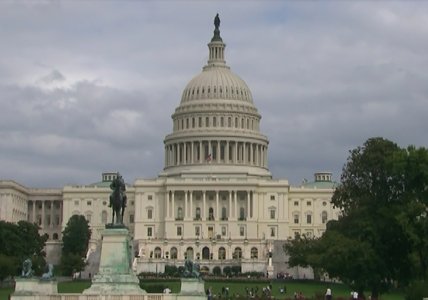
Full Episode: April 8, 2011
With a $39 billion spending cut agreed upon, the possibility of a government shutdown is finally over. The panel discusses why leaders of neither side wanted a shutdown in the first place, and how their constituents may feel. Joining Gwen Ifill: John Dickerson, Slate Magazine/CBS News; Michael Duffy, TIME Magazine; and Jeanne Cummings, Politico.

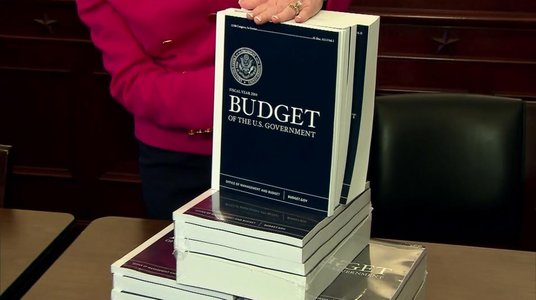
Full Episode: April 15, 2011
While President Obama and Rep. Paul Ryan both unveiled plans to cut $4 trillion from the national debt they continue to argue over how to do it. The GOP and Democrats continued to fight over America's deficit, from taxes to overhauling Medicare and Medicaid. This week: Susan Davis, National Journal; Jeff Zeleny, New York Times; Janet Hook, Wall Street Journal; John Harwood, CNBC/NY Times.

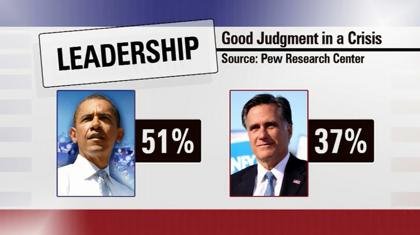
Full Episode: April 22, 2011
With gas prices on the rise, an S&P report lowering America's credit outlook, continuing debate over the deficit and a stalemate in Libya, President Obama's approval numbers have declined just at the moment he launched his reelection campaign. Joining Gwen tonight: David Wessel/Wall Street Journal; Coral Davenport/National Journal; Dan Balz/Washington Post and Martha Raddatz/ABC News.


Full Episode: May 6, 2011
After U.S. forces kill Osama bin Laden, America rejoices but the war on terror continues. The panel looks at the intelligence that led to bin Laden, the political and national security impact, and the strained US-Pakistan relationship. Joining guest host, Gloria Borger: James Kitfield, National Journal, Tom Gjelten, NPR, Peter Baker, New York Times, and Charles Babington, AP.

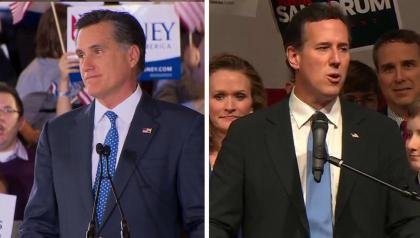
Full Episode: May 20, 2011
After infighting between New Gingrich and fellow republicans, the panel examines the current field of GOP candidates. Also, the table reports on campaign fundraising efforts, the scandal rocking the IMF, and the President's clash with Israel's PM on the path to peace in the Mideast. Joining Gwen: Jeanne Cummings/POLITICO, Michael Duffy/TIME, Doyle McManus/Los Angeles Times, Eamon Javers/CNBC.

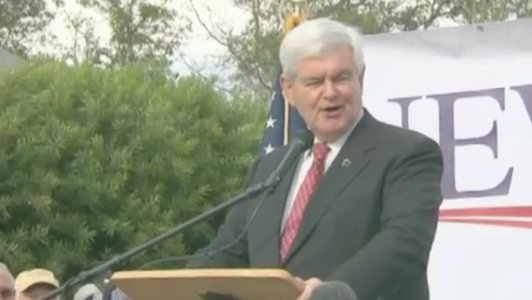
Full Episode: June 10, 2011
As his top staff resigns, Newt Gingrich's presidential ambitions seem to falter while Democrats distance themselves from Rep. Anthony Weiner after he confessed to sexually explicit online activity. Also, a report on the future of Afghanistan as U.S. troops get set to withdraw. Joining Gwen: James Kitfield, National Journal; John Dickerson, Slate/CBS News; and Karen Tumulty, Washington Post.


Full Episode: June 17, 2011
Analysis of the 2nd GOP Presidential debate, and a new fact check feature 'Just the Facts.' Plus, details of VP Biden's negotiations on raising the debt ceiling. Also, the Pentagon and Defense Dept post-Robert Gates & controversy over the US involvement in Libya. Joining Gwen: Michael Duffy, Time; Nancy Youssef, McClatchy Newspapers; Dan Balz, Washington Post; and Jim Barnes, National Journal.


Full Episode: June 24, 2011
President Obama's announcement to begin drawing down U.S. troops from Afghanistan and what it means; the impact on class action suits because of the Supreme Court's Wal-Mart decision; and the latest on the growing GOP presidential field. Joining Gwen: Martha Raddatz, ABC News; Doyle McManus, Los Angeles Times; Nia-Malika Henderson, Washington Post; and Pete Williams, NBC News.

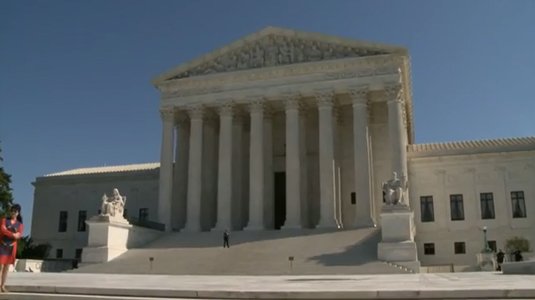
Full Episode: July 1, 2011
What will the global economic implications be if Congress does not raise the nation's $14.3 trillion debt limit? Also, Bachmann launched her presidential campaign. Plus, SCOTUS' ruling on the sale of violent video games to children. Joining Pete Williams: David Wessel of The Wall Street Journal; Major Garrett of National Journal; Jeff Zeleny of The New York Times; and Joan Biskupic of USA Today

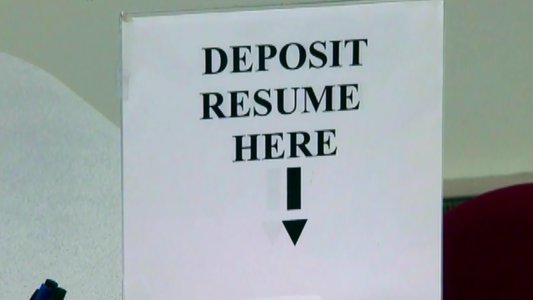
Full Episode: July 8, 2011
Discouraging June unemployment numbers help to frame the contentious debt ceiling negotiations. A look at GOP presidential hopefuls and their fundraising, and the White House changes course on acknowledging suicides in the military.


Full Episode: July 15, 2011
President Obama predicts economic "Armageddon" if the debt ceiling isn't raised by the Aug 2 deadline. Democrats want tax hikes. Republicans want spending cuts. Gwen Ifill drills down on the facts & fiction surrounding the budget crisis with Michael Duffy, TIME Magazine; Gloria Borger, CNN; John Dickerson, Slate Magazine/CBS News; David Wessel, The Wall Street Journal.


Full Episode: July 29, 2011
Lawmakers prepare to work through the weekend to reach a debt deal and avoid a U.S. default. What will it take to break the stalemate and how would a default impact Americans? Plus, how Obama, Boehner, and Reid have played it so far. Joining Gwen Ifill: Major Garrett, National Journal; Jeanne Cummings, Bloomberg News; David Wessel, The Wall Street Journal; and Karen Tumulty, The Washington Post.


Full Episode: August 5, 2011
The economy is the worst it's been in years. Why and how did we get to this point? Also, with all the infighting in Washington these past 3-months, how did the debt deal come together and how will it effect the 2012 elections? Also, voter confidence and its impact on the polls. With Michael Duffy, Time; Deborah Solomon, The Wall Street Journal; and Charles Babington, Associated Press.


Full Episode: August 12, 2011
Gwen Ifill reports from Iowa on the 2nd Republican primary debate and the Ames Straw Poll. Joined by Dan Balz, The Washington Post, they look at the testy exchanges on the debate stage. Plus, in the Washington Week studio, Judy Woodruff examines the White House's response to recent troublesome economic news with John Harwood of CNBC/The New York Times and Jackie Calmes, The New York Times.

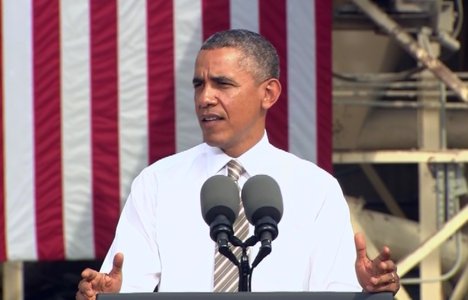
Full Episode: September 16, 2011
President Obama took his jobs plan straight to voters this week amidst a bounty of bad news including a jump in unemployment benefit applications, and a spike in the number of people living in poverty. And analysis of the Tea Party debate. Joining Gwen Ifill: John Dickerson of Slate/CBS News, Beth Reinhard of National Journal, Charles Babington of AP, Michael Fletcher of The Washington Post.

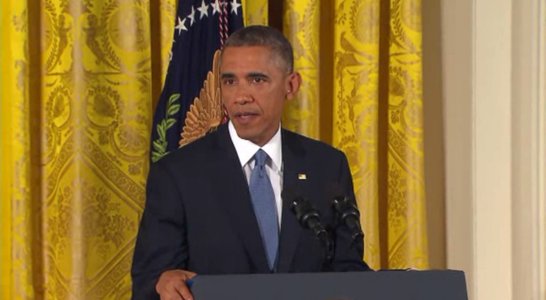
Full Episode: September 23, 2011
President Obama unveils his deficit reduction plan, with new taxes and spending cuts. Plus, Congress argues over disaster relief and a possible government shutdown. Also, Palestinians appeal for full membership at the UN. And the GOP presidential candidates debate.

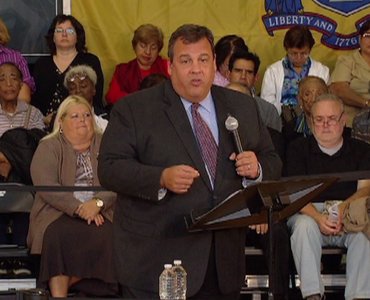
Full Episode: September 30, 2011
Airstrikes killed Anwar al-Awlaki, a U.S.-born Al-Qaeda leader in Yemen. At home, dissatisfied GOP voters want Gov. Chris Christie to join the presidential race. Also, President Obama feuds with his base. Plus, a stopgap bill temporarily prevents a government shutdown. Joining Gwen: John Dickerson, Slate/CBS News; Sam Youngman, The Hill; Major Garrett, National Journal; Pierre Thomas, ABC News.

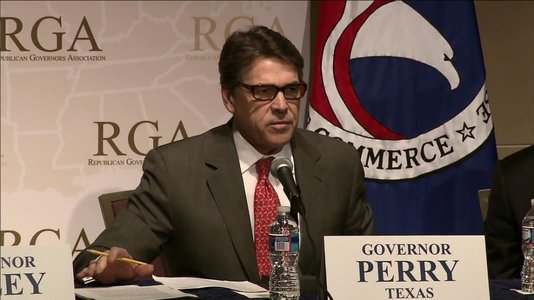
Full Episode: October 14, 2011
As the GOP candidates debate economics, President Obama promotes his jobs plan. But with its defeat in the Senate, what's next? Also, the strange story of an assassination plot against a Saudi Ambassador involving Iran and a Mexican drug cartel. Joining Gwen: Karen Tumulty, Washington Post; Michael Duffy, TIME; Alexis Simendinger, RealClearPolitics; James Kitfield, National Journal.

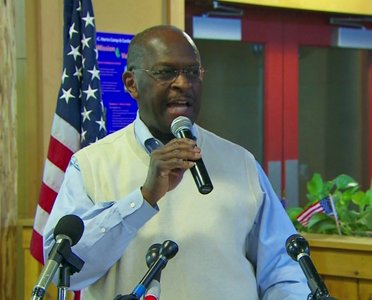
Full Episode: October 28, 2011
A long shot a short time ago, Herman Cain is shaking up the GOP race. But rising polls numbers brings greater scrutiny. And what happened to Rick Perry's surge? Also, the President tries to bypass Congress. Plus the clock is ticking on the Deficit Reduction Committee. Joining Gwen: John Dickerson, Slate/CBS News; John Harwood, CNBC/NY Times; Jackie Calmes, NY Times; Janet Hook, Wall St. Journal.


Full Episode: November 4, 2011
Alleged harassment scandals continue to dog Republican presidential frontrunner Herman Cain, as the other GOP candidates consider how to handle the controversy. Plus a discussion on the global economy, Greece, the G20 meetings, and new U.S. job numbers. Joining Gwen: John Harris, Politico; Chuck Babington, Associated Press; Alexis Simendinger, RealClearPolitics; Jim Tankersley, National Journal.

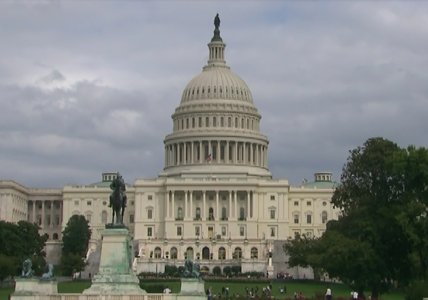
Full Episode: November 18, 2011
As the GOP candidates debated foreign policy, President Obama met with Asia-Pacific leaders. Newt Gingrich's bumpy climb in the polls. And, what happens if the Super Committee fails to deliver? Plus, SCOTUS to decide constitutionality of health reform. Joining Gwen: Major Garrett, National Journal; Jeanne Cummings, Bloomberg News; Lori Montgomery, The Washington Post; Joan Biskupic, USA TODAY.

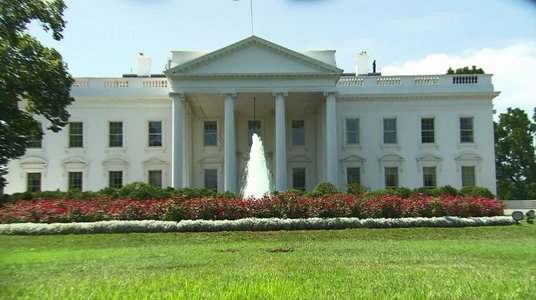
Full Episode: December 23, 2011
This week, we look back at 2011 and forward to 2012. We'll analyze battles between Congress and the President, the economy, the killing of Osama bin Laden, the pullout of US troops in Iraq while fighting continues in Afghanistan, and more. Joining Gwen: Helene Cooper, New York Times; Michael Duffy, Time Magazine; Doyle McManus, Los Angeles Times; David Wessel, Wall Street Journal.

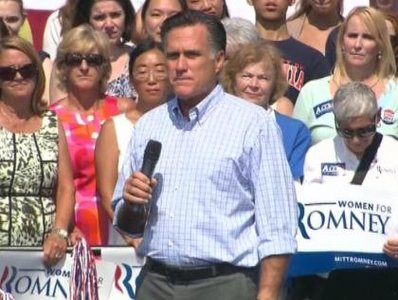
Full Episode: December 30, 2011
Four days before the Iowa Caucuses, Mitt Romney and Ron Paul lead, but Rick Santorum may surprise come voting day. Plus, how will Congressional retirements affect Democrats' efforts to retain control of the Senate in 2012? Joining Gwen from Iowa: Karen Tumulty, The Washington Post; Jeff Zeleny, The New York Times. Around the table: Christina Bellatoni, CQ Roll Call; Susan Davis, USA Today.

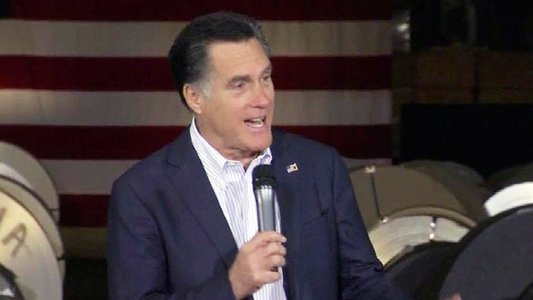
Full Episode: Januuary 6, 2012
This week, we're on the ground in Manchester, New Hampshire to preview the primaries. After a close finish in Iowa, will Mitt Romney stay ahead of the pack in the Granite State? Joining Gwen: Dan Balz, Washington Post; John Dickerson, Slate Magazine and CBS News; Julianna Goldman, Bloomberg News; John Harwood, CNBC and The New York Times.


Full Episode: January 13, 2012
Will Mitt Romney's momentum from successive wins in Iowa and New Hampshire help him win South Carolina? Plus, the Supreme Court will decide on the FCC's authority to regulate the airwaves, and President Obama's aims to shrink government. Joining Gwen: Beth Reinhard, National Journal; Jeanne Cummings, Bloomberg News; Alexis Simendinger, RealClearPolitics.com; Pete Williams, NBC News.

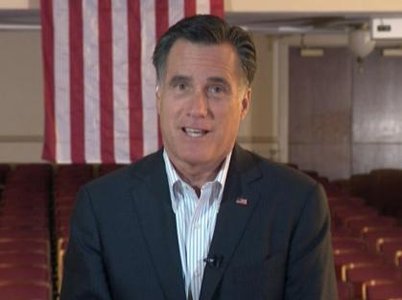
Full Episode: January 27, 2012
Ahead of next week's Florida Republican primary, the 4 remaining candidates squared off on the ground and in two debates. Plus, following his State of the Union Address, President Obama hit the road to push his economic and jobs plan. Joining Gwen: Dan Balz, The Washington Post; John Dickerson, Slate Magazine & CBS News; Jackie Calmes, The New York Times; David Wessel, The Wall Street Journal.


Full Episode: February 3, 2012
What do January's unemployment numbers tell us about the economy? Plus, Mitt Romney won the Florida primary, but his comments about the poor are making headlines. Also, new FEC disclosures shine light on Super PAC money. Joining Gwen: Karen Tumulty, Washington Post; John Harwood, CNBC and New York Times; Doyle McManus, Los Angeles Times; Jim Tankersley, National Journal.


Full Episode: February 17, 2012
As the GOP presidential primary race between Rick Santorum and Mitt Romney tightens, the panel previews the Arizona and Michigan primaries. Plus, President Barack Obama's proposed budget, a deal to extend payroll tax cuts, and tensions over Iran's nuclear program. Joining Gwen: Karen Tumulty, Washington Post; Jackie Calmes, New York Times; Susan Davis, USA Today; Martha Raddatz, ABC News.

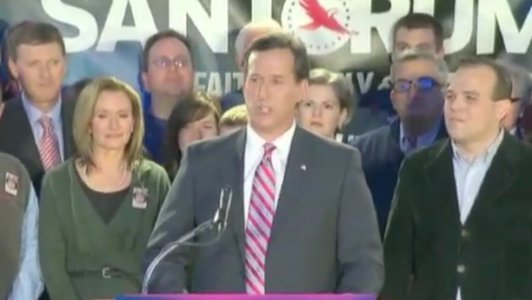
Full Episode: February 24, 2012
Rick Santorum is the main target in the GOP race as 13 states prepare to vote between now and Super Tuesday. Plus, international leaders meet in Tunisia to prevent more bloodshed in Syria. And unrest continues in Afghanistan after the burning of Qurans. Joining Gwen: Michael Duffy, TIME Magazine; Jeanne Cummings, Bloomberg News; Nancy Youssef, McClatchy; Yochi Dreazen, National Journal.

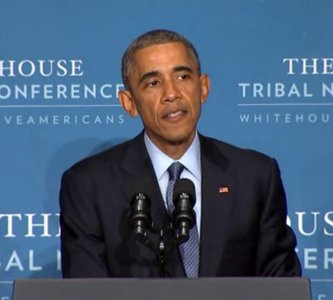
Full Episode: March 2, 2012
As we head into Super Tuesday, which GOP candidate has momentum and how will Tuesday's primaries change the race? Meanwhile, President Obama makes campaign-like speeches in Michigan and New York. Also, Senator Olympia Snow resigns, saying there is no longer bipartisanship in Congress. Joining Gwen: John Dickerson, Slate/CBS News; Gloria Borger, CNN; Charles Babington, Associated Press.


Full Episode: March 30, 2012
The Supreme Court heard three days of arguments on the 2010 Affordable Care Act. What were the key issues before the court? Plus, a mic catches a private comment between President Obama and Russian President Medvedev. Also, Mitt Romney's latest endorsements and the GOP race. Joining Gwen: Joan Biskupic, Reuters; Pete Williams, NBC News; Jeff Zeleny, New York Times; Julianna Goldman, Bloomberg News

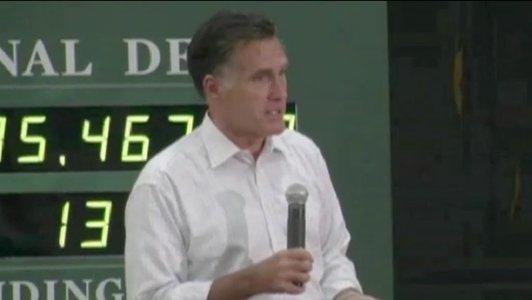
Full Episode: April 6, 2012
After three big wins Mitt Romney has scored more than half of the delegates needed for the GOP presidential nomination. Plus, new unemployment numbers shed light on the economy. Also, female voters, the President's Supreme Court remarks and more. Joining Gwen: John Dickerson, Slate Magazine/CBS News; Karen Tumulty, Washington Post; Jackie Calmes, New York Times; David Wessel, Wall Street Journal.

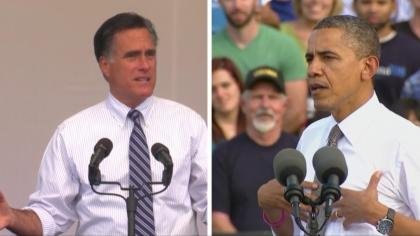
Full Episode: April 27, 2012
As the campaigns look ahead, Mitt Romney targets Barack Obama, but he is targeting youth voters. The Supreme Court hears arguments on Arizona immigration law. Also, a year after Osama bin Laden's death, balancing terrorism and civil liberties. Joining Gwen: John Dickerson, Slate Magazine/CBS News; Alexis Simendinger, RealClearPolitics; Pete Williams, NBC News; James Kitfield, National Journal.

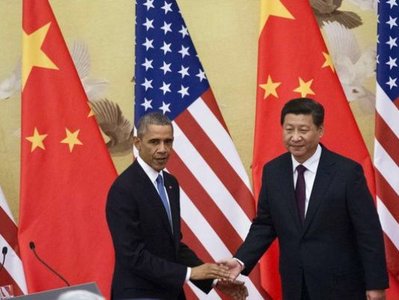
Full Episode: May 4, 2012
The U.S. and China continue to negotiate over activist Chen Guangcheng's travel to America. Plus, President Obama visited Afghanistan on the one year anniversary of Osama bin Laden's death. Also, new unemployment numbers and the 2012 presidential race. Joining Gwen: Martha Raddatz, ABC News; Peter Baker, New York Times; David Wessel, Wall Street Journal; Charles Babington, Associated Press.


Full Episode: May 11, 2012
What's the political fallout of President Obama's support for same-sex marriage? Plus, longtime Senator Richard Lugar, R-Ind., lost his party's primary. What does that mean for moderate republicans and incumbents? Also, the double-agent al-Qaeda plotter. Joining Gwen: Major Garrett, National Journal; John Dickerson, Slate Magazine & CBS News; Susan Davis, USA Today; Pierre Thomas, ABC News.


Full Episode: June 1, 2012
What do disappointing job numbers mean for the already unemployed and the state of economic recovery? Mitt Romney wins enough delegates to make him the unofficial Republican nominee and finds himself in a dead heat with President Obama in three key swing states. Plus the latest on the crisis in Syria.

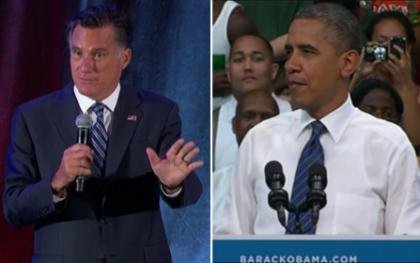
Full Episode: June 22, 2012
Mitt Romney and President Obama court Latino voters as immigration politics enters the spotlight. Plus, Obama invokes executive privilege as Attorney General Eric Holder faces a contempt of Congress charge. Also, what’s Europe’s economic future? This Week: Jeff Zeleny, New York Times; Laura Meckler, Wall Street Journal; Major Garrett, National Journal; Doyle McManus, Los Angeles Times.

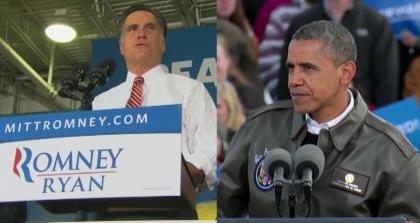
Full Episode: July 6, 2012
President Barack Obama campaigns in Ohio and Pennsylvania and accuses Romney of outsourcing jobs during his time at Bain Capital. Meanwhile, Mitt Romney says that the federal health care mandate is indeed a tax. Plus, new unemployment numbers. Joining Gwen: Dan Balz, The Washington Post; Jan Crawford, CBS News; Charles Babington, Associated Press; Amy Walter, ABC News.

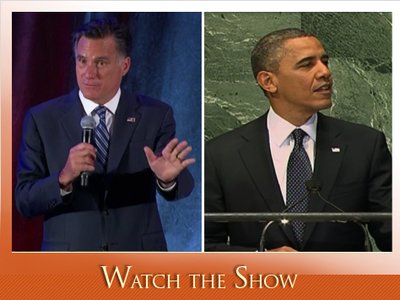
Full Episode: July 13, 2012
This Week, President Barack Obama and Mitt Romney both campaigned in battleground states. Obama called for an extension of middle class tax cuts while Romney addressed the NAACP. Also, House Republicans voted to repeal the president's health care law. Joining Gwen: Michael Duffy, TIME Magazine; Lori Montgomery, The Washington Post; Alexis Simendinger, RealClearPolitics; Sam Youngman, Reuters.


Full Episode: July 20, 2012
A horrific mass shooting at a movie theatre near Denver, Colorado. The campaigns talk about tax history and economic policy as attack ads from both campaigns intensify. And the fighting in Syria spreads to Damascus as the rebels achieve new victories. Joining Gwen: Pierre Thomas, ABC News; Karen Tumulty, The Washington Post; Jeff Zeleny, The New York Times; Doyle McManus, Los Angeles Times.

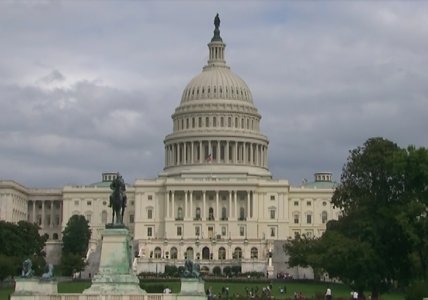
Full Episode: August 3, 2012
Mitt Romney and President Obama rally undecided voters in battleground states. The Tea Party scores a big victory in Texas with Senate nominee Ted Cruz. Plus July jobs numbers and Congress starts its summer recess with key legislation left undone. Joining Gwen: Amy Walter, ABC News; Karen Tumulty, The Washington Post; David Wessel, The Wall Street Journal; Susan Davis, USA Today.


Full Episode: August 10, 2012
New polls show that the presidential race is as close as ever. Mitt Romney and President Barack Obama campaign in key swing states as the campaigns and super PACs release more controversial advertisements. Also, when will Romney pick his running mate? Joining Gwen: Jeff Zeleny, The New York Times; Beth Reinhard, National Journal; John Harwood, CNBC and The New York Times.


Full Episode: August 17, 2012
Mitt Romney’s campaign received a jolt after announcing his running mate, Rep. Paul Ryan. Both campaigns came out swinging with new attacks ranging from policy to personal. Will Paul Ryan’s addition to the campaign change the direction of election? Joining Gwen: Jackie Calmes, The New York Times; Alexis Simendinger, RealClearPolitics; John Harris, POLITICO.


Full Episode: August 24, 2012
A Special Washington Week from St. Petersburg, Florida ahead of the Republican National Convention. How did the Mitt Romney campaign attempt to remain on-topic amidst the Todd Akin debacle? Why are the candidates sparring over Medicare again? Joining Gwen: Dan Balz, Washington Post; Beth Reinhard, National Journal; John Dickerson, Slate and CBS News; Amy Walter of ABC News.


Full Episode: August 31, 2012
Special Washington Week from Charlotte, North Carolina: Did Mitt Romney fulfill expectations at Republican National Convention? Plus what affect did Clint Eastwood's unscripted speech have? Also, we preview the Democratic National Convention. Joining Gwen: Jeff Zeleny, New York Times; Karen Tumulty, Washington Post; Alexis Simendinger, Real Clear Politics; John Hardwood of CNBC / New York Times.

© 1996 - 2026 WETA. All Rights Reserved.
PBS is a 501(c)(3) not-for-profit organization
